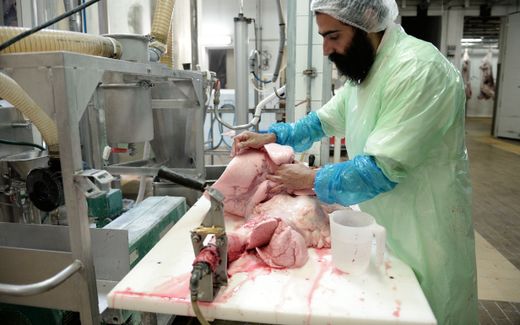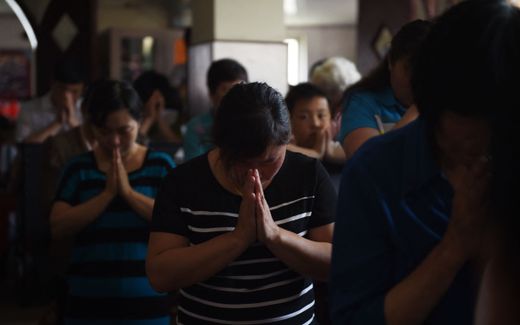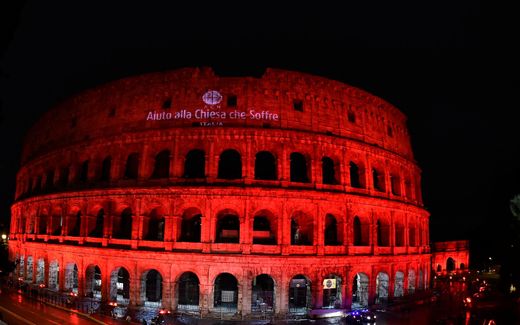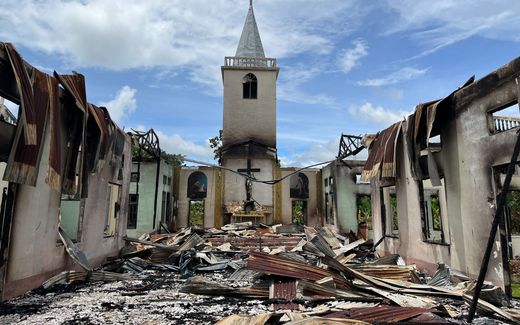Freedom of religion rubs with secular thinking in Western Europe
24-11-2022
European Union
Leendert de Bruin, RD
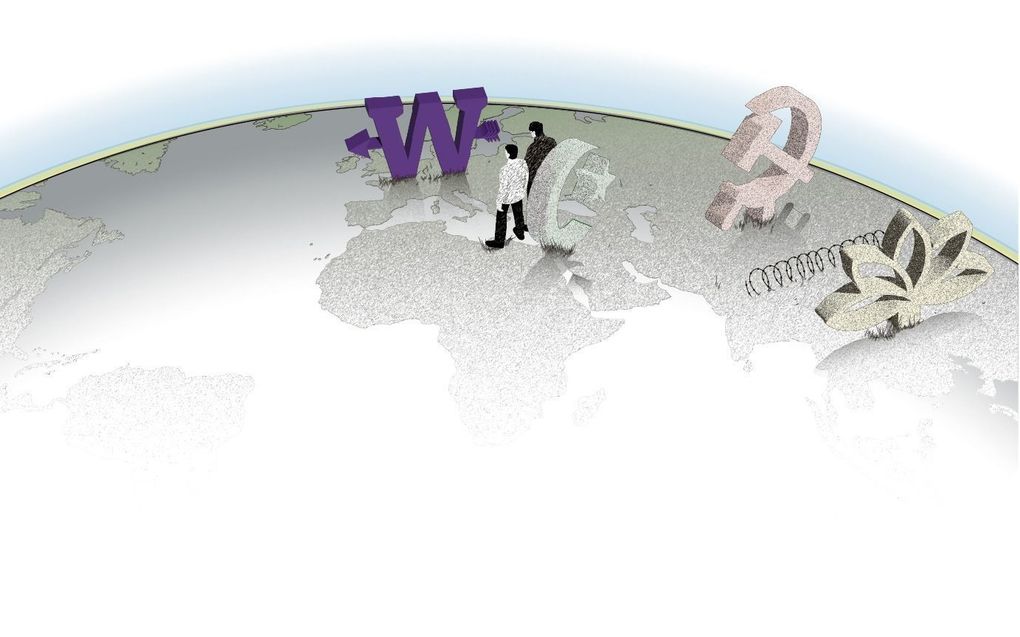
Photo RD
European Union
Conservative beliefs are increasingly rubbing with the secular thinking of the majority in Western Europe. The right to religious freedom is being tested severely. And this sometimes causes different outcomes.
In the democratic West, religious freedom is part and parcel. As one of the classic fundamental rights, it is firmly anchored in the constitution of almost every European state. In addition, it is included as a human right in two influential documents to which almost all European countries are bound: the Universal Declaration of Human Rights and the European Convention on Human Rights.
With these, freedom of religion seems to stand firm. But nothing could be further from the truth, warns the Vienna-based Observatory on Intolerance and Discrimination against Christians in Europe (Oidac). In a report published last week, the organisation points to growing secular intolerance straining this human right. "Religious freedom in Europe is seriously threatened, especially that of Christians."
According to the observatory, examples include intolerance due to Christian ethics -think abortion, euthanasia and gender relations- and the removal of Christian symbols from public places. This "growing secular intolerance" can even lead to hate crimes, such as attacks on churches or individuals, according to Oidac. The organisation documented 500 such incidents in Europe over the past year.
Burka
That there is increasing friction between secular thinking and conservative believers' views does not escape religious freedom experts. As a result, the nature of the discussion on this human right has shifted. "Previously, it was about the relationship between church and state; in recent decades, particularly about what values apply in society," observes Prof Sophie van Bijsterveld. She is a professor of religion, law and society at Radboud University Nijmegen.
"Incredibly topical," Prof Paul van Sasse van IJsselt calls freedom of religion in a relatively secularised Western Europe. "Many religious expressions clash with majority beliefs. You see it, for example, in issues surrounding the burka or headscarf. Or with unanaesthetised ritual slaughter," says the professor of law and religion at the University of Groningen. "That leads to fundamental questions."
The corona measures also proved to be a test of religious freedom. "There was a kind of public wonderment about the so-called privileged status of churches. That led to heated debate." According to the Groningen scholar, it then turned out that the unique position of churches in the Netherlands was still recognised by the government, even though it went against broad public sentiment. "You did notice a tension there," he said.
Ongoing debate
Misunderstanding of conservative views manifested itself in several court cases over the past year. Finnish politician Räsänen, Dutch pastor Kort and German pastor Latzel had to deal with the judiciary because of their critical voices on homosexuality. All three were acquitted or not prosecuted for hate speech. That it came to court cases indicates that the scope of freedom of religion and expression is being tested. At the same time, the outcomes testify that religious freedom is legally upheld on that point.
Whether there is a trend that conservative believers are no longer allowed to express themselves freely, Van Bijsterveld finds it hard to say. As for the Netherlands, the professor sees that things have changed in legislation. Like the possibility for municipalities to refuse people as civil registrars if they are not willing to perform marriages between people of the same sex.
Redundant human right?
When churches stayed open during the corona lockdowns, it was regularly echoed: religious freedom gives a believer far more rights than a secular person. Why perpetuate something so unjust? No blood flows from abolishing freedom of religion anyway. Other human rights, such as freedom of assembly and expression already cover this right.
"I find that nonsensical," responds Paul van Sasse van IJsselt on the proposal. "It is a given that billions of people adhere to a particular religion or belief. It is an important part of their identity, of their existence. It deserves protection for that reason."
Sophie van Bijsterveld also points this out. "I would find it wrong and very unnatural to abolish religious freedom. It is curious not to name something in terms of what it is really about. People are about religion. A church gathering is more than just a meeting. It is the joint profession of faith."
Moreover, not all religious practices currently covered by freedom of religion are fully protected by the other fundamental rights, the professor explains. "Think about religious boy circumcision or ritual slaughter." In other words, this fundamental right is there for a reason.
On top of that, it would send "the wrong signal" to abolish what the whole Western development of fundamental rights and the modern rule of law started with: freedom of religion. "By doing so, you throw overboard a very important element in the genesis of the democratic rule of law in Europe."
Professor Van Sasse van IJsselt attributes the proposal to abolish freedom of religion to "increasing religious illiteracy." An increasing number of people in Western Europe are themselves less familiar with the feelings and thoughts of religion. This wrongly leads to the conclusion that religious practices no longer need protection, the expert says.
According to Van Bijsterveld, the discussion is not strongly alive at the moment, but she sometimes hears from individuals who raise abolitionist concerns. "I think people who think that is unnecessary thereby show that they do not have a good grasp of the phenomenon of religion."
However, religious freedom has never been a static issue, she stresses. For instance, the advent of Islam poses new questions. Views within a society also change over time. "What the boundaries are then is subject to constant debate. It is good to have that discussion, where believers are also allowed to express their views boldly."
In recent centuries, the exact content of religious freedom and the relationship between church and state has changed. A precursor to the right to religious freedom as we know it today was included in the Union of Utrecht (1579). Although revolutionary for the time, the treaty offered only limited freedom of conscience. In the centuries that followed, it was increasingly extended, with church and state becoming increasingly unbundled.
Ritual slaughter
This development did work out differently in different countries in Europe. At one end of the spectrum are countries that fall within laicism, France being the prime example. This hard-to-translate word boils down to the government's desire to be strictly religiously neutral. Religious expressions in the public domain, such as in government buildings, are out of the question.
France's current interpretation of this is not unchallenged, says Van Sasse van IJsselt. "A major criticism is that laïcité used to be all about freedom. Nowadays, the model is increasingly about control." In 2021, for instance, the French parliament passed a law "in defence of republican values." According to religious leaders, the law portrays religion as a threat to France.
In stark contrast is the state church model, as is the case in England, for example. There, there are all kinds of institutional links between church and state. This goes hand in hand with complete religious freedom, Van Bijsterveld said. "The presence of a state church does not mean that religious freedom is not possible by definition." The same applies to Denmark.
Freedom of religion
According to Article 18 of the Universal Declaration of Human Rights, "everyone has the right to freedom of thought, conscience and religion; this right includes freedom to change his or her religion or belief. In doing so, every person has "the freedom, either alone or with others, both in public and in private, to manifest his religion or belief by teaching it, by its practical application, by worship and observance of its commandments and precepts." All 193 members of the United Nations have committed themselves to this.
In between are countries belonging to the pluralistic cooperative model, including the Netherlands and also Germany. There is a limited form of cooperation between the government and religious groups within the limits of the separation of church and state.
As long as these variants do not lead to unequal treatment, they are acceptable to the European Court of Human Rights, according to Van Sasse van IJsselt. That is the highest court for citizens from the 46 countries affiliated with the Council of Europe. This institution administers justice in cases brought by citizens against their state.
The European court has regularly dealt with complex issues in recent decades. This year, Belgian Jews went to court to challenge the Flemish and Walloon bans on unanaesthetised ritual slaughter. According to them, slaughter is an essential part of the Jewish religion. The case is still ongoing.
Scandinavian countries have long had a ban on unanaesthetised slaughter. In France, however, the practice is allowed again, as in the Netherlands. Even though religious freedom is a classic fundamental right in Europe, its effect is very diverse.
This article was translated by CNE.news and previously published in Dutch daily Reformatorisch Dagblad on November 22th, 2022.
Related Articles

